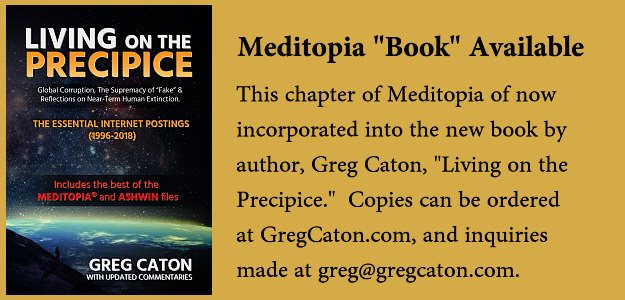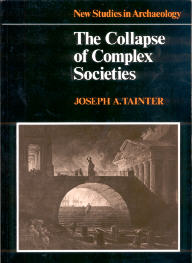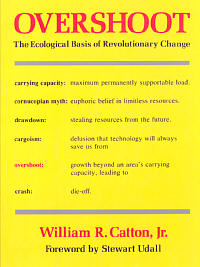
aving examined the contributions to
the science of optimal health from the standpoint of
entropy
and exosomatic axis (thermodynamics),
Occam's razor (logic),
Gresham's law (economics),
The Matrix (philosophy),
M-Fields
(quantum physics, some would say metaphysics),
we work them under the
umbrella of evolutionary potential (arguably both
biology and sociology), upon which they all share
one or more tangents.

A host of books now
crowd the market that place the corruption of organized
medicine at the feet of politics and greed.
(Read a
sampling
from my own "medical corruption and suppression of technology library").
Alpha Omega Labs'
own byline clearly reflected our understanding of this
from our inception. But I propose that politics and greed
are only symptoms or subsets of
larger conditions that run much
deeper in a system as complex and specialized as our
monolithic, monocultural, monopolitical, monopolistic
system of health care.

Service's 'law of evolutionary
potential' provides insights as to why.
2.

Specialization is
a hallmark of civilization. Indeed, Adam Smith emphasized
division of labor as a key component of wealth in
the life of the nation. "The division of labour,
however, so far as it can be introduced, occasions,
in every art, a proportionable increase of the
productive powers of labour . . . This separation,
too, is generally carried furthest in those countries
which enjoy the highest degree of industry and
improvement . . . "
6. The
explosive growth of specialization in graduate
medical education of late
is a clear sign that
7,
wittingly or unwittingly, we have committed the "productive
powers" of our expanding medical establishment
to the idea that specialization is good, more
specialization is better, and maximized
specialization is what's best for business . . .
I mean, medicine . . . I mean, the patient.

Just who the
real beneficiaries of this monumental conjoining
of medicine, corporate interest, and higher
entropy therapies are is debatable. We won't
speculate on how the battle lines are drawn
because we already know that the polemical
combatants will be found in accordance with where
they derive their paychecks. That the exosomatic
side of things delivers the heftier paychecks
explains why the message of endosomatics
is so faint and confused in the competition
for mind share, market share -- everywhere.

We can, however,
surmise how such a exosomatic system will fair if the
surrounding infrastructure were forced to
subsist on a lower entropy diet. The outcome
clearly falls into the Catton's "die-off" category.
3.

Service's theory
tells us that "specific evolutionary 'progress' is
inversely related to general evolutionary 'potential.'
Within this view, success at adaptation breeds
conservatism; dominant polities are less able to
accommodate change. Successful complex societies
[i.e. high entropy, highly exosomatic]
become locked into their adaptations, and are
easily bypassed by those less specialized
[i.e. low entropy, more endosomatic]."
8.
R. N. Adams believes this rigidity and conservatism
"result from investment in controlling major
energy sources," which would follow because a high
entropy culture, by definition, requires a high energy diet.
9,

Tainter continues
to comment on the long-term viability of more
specialized social structures. "So by having greater flexibility, less complex
border states gain an increasing competitive
advantage, and are thus able ultimately
to topple older, established states."
10.
The implications of this development, which we
can see, drawing from current news reports from
the war on terrorism -- are easy to draw and we
will get to them later, but for now I want to
focus on two important extrapolations on
Service's observations.

Life for man,
or any other species on this plant, entails an
unending stream of adaptations as the environment
undergoes constant change. The deadly microbes
of one era give way to those of another.
Ecological challenges that may impinge on the health
of one community at one time or place may be unknown
to any other. Optimal health care, if it could
speak on its own behalf, would choose a healing,
therapeutic paradigm that
maximized its
potential, not restricted it. It would choose to
be eclectic, not provincial. It would choose to
be iconoclastically committed in seeking out
the most empirically efficacious, not narrow in
its rigid adherence to peer review, maximum
profiteering, and the nasty business of
pseudo quack-mongering.

Our
evolutionary potential is minimized by
rigidly specialized structures not
because they fail to serve their needful,
specialized function -- but because PEOPLE
give them a life of their own that rejects
the notion that generalized and specialized
forms can co-exist in cooperation and
not competition.

The second
point worth mentioning in connection with Service's
law is the disservice inherent in 'tunnel vision'
medical specialization. As we mentioned in the
Entropy chapter, the human body is an endosomatic
creation to which modern medicine insists on
applying exosomatic solutions. Even Tainter falls
into the trap of thinking of medical technology
advances in the same terms as you would think
of advances in chemistry, metallurgy, or astronomy.
"As more generalized knowledge is established
early in the history of a discipline, only more
specialized work remains to be done. This tends
to be more costly and difficult to resolve, so
that increasing investments yield declining
marginal returns . . . Moden science is becoming
less producive overall (there are always
countervailing trends in some fields) because it
has become increasely specialized and expensive."
11
Tainter than goes on to quote a principle close
to the heart of physicist Max Planck, one
that Rescher calls 'Planck's Principle of
Increasing Effort' which states that ' . . . with
every advance [in science] the difficulty of
the task is increased.'
12,

This is where
Tainter's otherwise brilliant observations break down,
just as Newton's seemingly imperturbable laws
break down under the microscope of quantum mechanics.
My experiences exploring various healing traditions
at Alpha Omega Labs taught me that the best solution
is, more times than not, the simplest one, the
inexpensive one, the one that isn't specialized or
complicated, the one that proud men of esteemable
learning would be most likely to overlook.
("What the builders have rejected has become
the cornerstone.")

Simplicity
and having one's eye on the endosomatic does something
more than allow us to 'pass to the next stage,'
it allows us to attune to the miracle of life,
to stand in awe of its wonder, to realize that it's
alright to acknowledge our ignorance and allow
a creative intelligence that the highly specialized
mind will never grasp to reveal the whole,
manifest the wondrous possibilities of the whole . . .
to heal the whole -- in us and in everyone and
everything around us.

Only in that
light is real evolutionary potential possible.

 aving examined the contributions to
the science of optimal health from the standpoint of
entropy
and exosomatic axis (thermodynamics),
Occam's razor (logic),
Gresham's law (economics),
The Matrix (philosophy),
M-Fields
(quantum physics, some would say metaphysics),
we work them under the
umbrella of evolutionary potential (arguably both
biology and sociology), upon which they all share
one or more tangents.
aving examined the contributions to
the science of optimal health from the standpoint of
entropy
and exosomatic axis (thermodynamics),
Occam's razor (logic),
Gresham's law (economics),
The Matrix (philosophy),
M-Fields
(quantum physics, some would say metaphysics),
we work them under the
umbrella of evolutionary potential (arguably both
biology and sociology), upon which they all share
one or more tangents.
